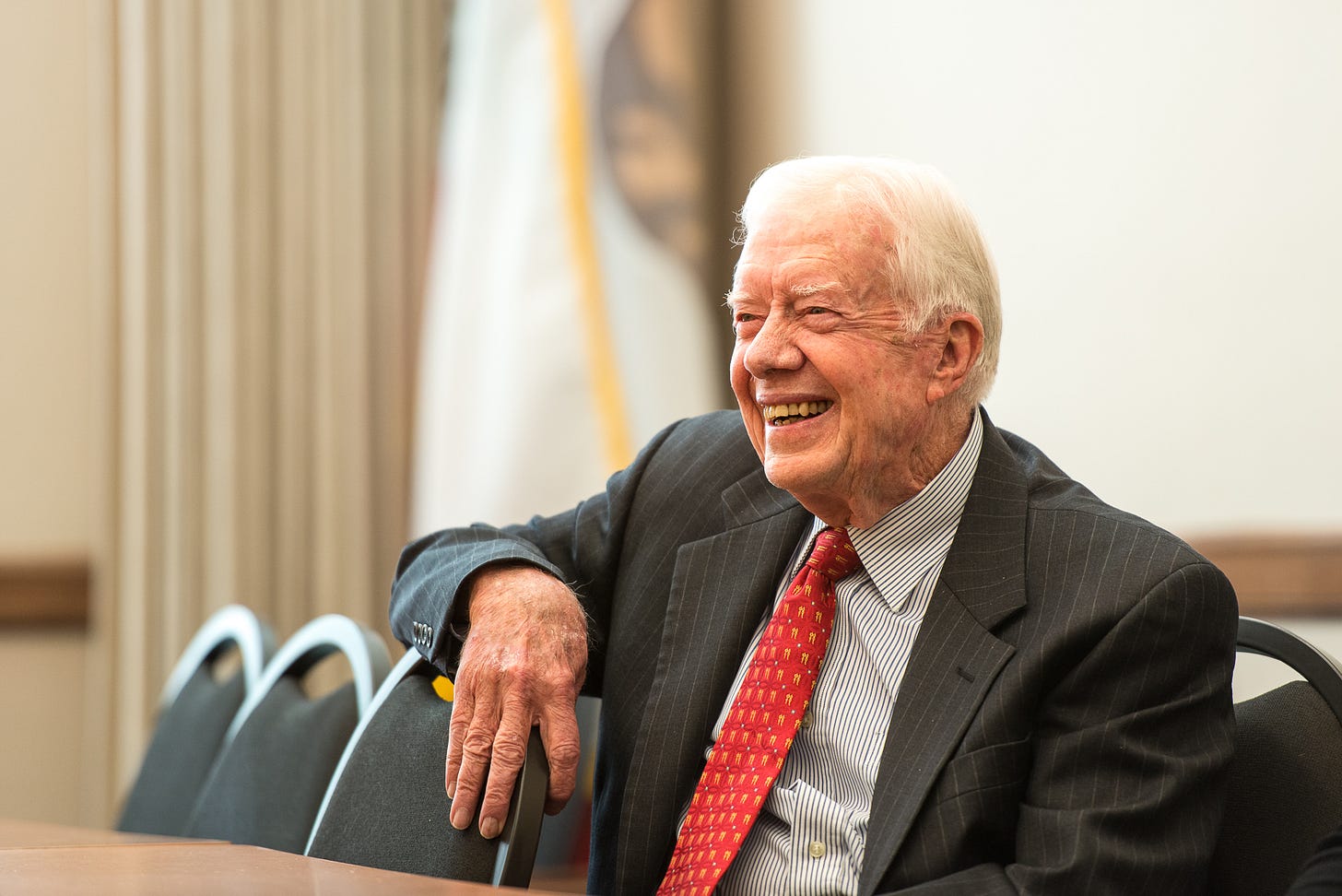I will leave it to others to recount the many challenges of Jimmy Carter’s presidency. I recall some of them myself, most notably buying a car with an 18 percent auto loan. I also recall Carter speaking of “national malaise” wearing a sweater in front of a lit White House fireplace. Carter was ridiculed for his efforts to reduce energy usage, just as he was blamed for failing to rescue the Iranian hostages.
By the time Carter left office, he was considered a failure. I don’t remember him as one, even though the presidency of his successor, Ronald Reagan, was seen by many as a rescue from an America in decline.
I don’t dispute the successes of the Reagan presidency, but I also credit Reagan with consciously working to destroy Carter’s credibility during the 1980 campaign. Donald Trump, in more ways than one, took a page from the hard-hitting history of Reagan’s 1980 win in his treatment of Hillary Clinton, Joe Biden, and more than a dozen Republican primary challengers in three elections.
I like to think that if Reagan were alive today, he might regret his harsh treatment of Carter because, on reflection, Carter wasn’t so much a bad president as an unlucky one. His heart was in the right place, and Carter was no clueless idiot. He just won the election at the wrong time.
My experience with Carter came as a young Capitol Hill aide working under a moderate Republican Congressman who worked with Democrats and once told me that John F. Kennedy’s presidency had inspired him to enter politics.
President Carter’s Department of Justice proposed the reauthorization of two little-known federal statutes that sought to improve juvenile justice and stem the problem of runaway and homeless youth. I worked with my Democratic Hill counterparts and Carter officials to contribute to a strong reauthorization bill that passed both houses of Congress with near-unanimous votes.
Needless to say, such bipartisan cooperation is rare today. But in 1977, President Carter seemed to want to find common ground. Carter and his team, as well as the cooperation-minded Democrats on the Education and Labor Committee, made my job easy.
After the bill was passed, President Carter signed it. One day, I received a letter from the White House, signed by President Carter, thanking me for my work on the bill. I had it framed, and it still hangs in my office.
I continued to work on bipartisan legislation until Carter left office, but that wasn’t my last contact with him. Later, in the early 1980s, I boarded a flight from Washington National (not yet Reagan Airport) only to find President Carter seated two rows in front of me, accompanied by a pair of Secret Service agents.
I took my seat as the rest of the plane boarded. Then Carter did something unexpected. He stood up and asked the flight attendant if he could have a few minutes to greet the passengers before the plane backed off the gate. The answer was yes. Carter then personally greeted every passenger on the plane. Everyone was thrilled, especially me.
I followed Carter’s post-presidential work with admiration. No corporate boards for Carter. He preferred pounding nails for Habitat for Humanity, writing books, and promoting fair elections in countries where voting fraud is a reality.
I will miss Jimmy Carter. I hope that as America prepares for the Carter State funeral on January 9, we will all think about his life. He deserved a Nobel Prize for his peace-building work, which resulted in the Camp David agreements. He also deserves respect and thanks for being a great man, including his work as our 39th president.
© Copyright 2024 John Dean. All rights reserved.


